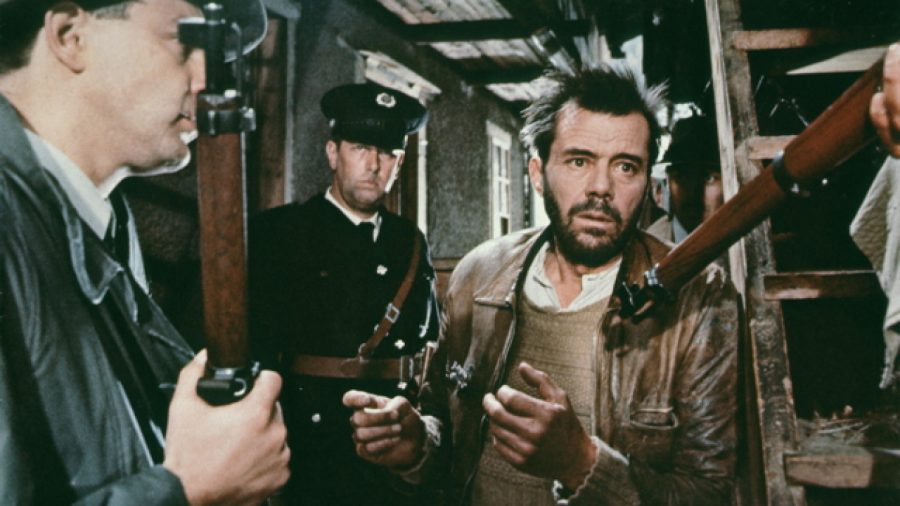The Fassbinder Season at the Edinburgh Filmhouse concludes with a landmark film in the career of the prolific German director. Despair was the first English language film that Rainer Werner Fassbinder directed and saw him collaborate with English playwright and screenwriter Tom Stoppard. Despair was released in 1978 and is an adaptation of a Vladimir Nabokov novel.
Dirk Bogard stars as Herman Hermann. He is the owner of a chocolate factory and we witness the psychological demise of the character and observe as he builds up walls between himself and the world around him. Herman is married to Lydia (Andréa Ferréol), a fickle lady who is having an affair with an artist she claims to be her cousin. Throughout the movie Herman begins to hallucinate and imagines a second self who observes the real Herman making love to his wife. These delusions and physiological breakdowns manifest themselves in his short temper and his erratic actions. Herman meets a man named Felix (Klaus Löwitsch), who he incorrectly believes is his doppelganger. Herman then adopts a scheme to cash in an assurance policy, which does not go according to plan and leaves him on the run from the police.
The madness of Herman is depicted in tragic and despairing methods. His anxiety presents a brittle man who is need of help, but does not know how to get it. The strength in the film is in how Fassbinder has chosen to present this mental illness. Herman does not use his delusions to his advantage and they are the source of his downfall. Even though he is a completely flawed character, capable of terrible crimes, he is not depicted as a total monster. The viewer observes a man on a downward spiral, who is isolated from society and unaware of his surroundings. He is a murderer and a criminal, however it is his inability to seek help and assistance which causes his demise and leads to the total tragedy of the character.
The story of Despair has a Hitchcockian feel. We observe a man on the run, who is in over his head and struggling to deal with his own demons. This absolute desolation is highlighted in the fact that the movie is set in the 1930’s and amidst the backdrop of the rise of the Nazi party. Anti-Semitic crimes are occurring around Herman, whilst he unsuccessfully deals with his own traumas. Even with this great overbearing evil, Fassbinder still expresses concern for him, and the melodrama of his mental illness. This makes Despair a standout in the filmography of the director and showcases his obsession on human tragedy and personal trauma.


Comments